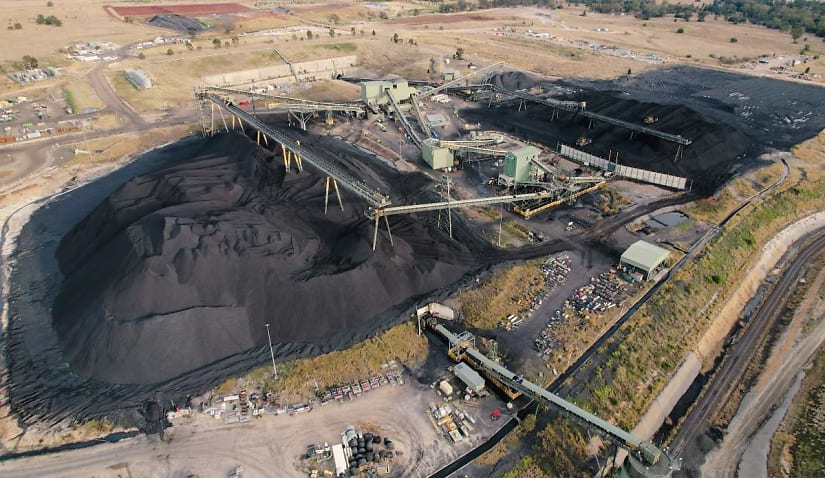Environment groups have continued to challenge the decision to expand a coal project in NSW, which is set to emit the equivalent of Australia’s total annual CO2 emissions and cost $400 million.

Bushfire Survivors for Climate Action (BSCA) has vowed to continue fighting for climate-vulnerable communities after the Land and Environment Court recently ruled that a coal mine expansion was legally reasonable.
In a Federal Court action last month, the Environment Counciol argued that the environment minister can and should consider the impacts of climate change in assessing new coal and gas projects.
However, earlier this month, the Land and Environment Court upheld the coal mine expansion approval, ruling in favour of the IPC.
The court ruled that the Narrabri Coal Mine expansion was legally reasonable, despite the mammoth CO2 emissions that will result from the project.
The project will generate 480 metric tons CO2-e in emissions, roughly equal to Australia’s total greenhouse gas emissions in 2022 (487 metric tons CO2-e), and includes some of the longest (10 kilometres) and widest (400 metres) underground longwalls in Australia.
In conversation with Lawyers Weekly, Bushfire Survivors for Climate Action president Jo Dodds said the action was a question of if the law was “sufficient to keep us safe from emissions-induced climate disasters”.
“BSCA has brought this case because approving new fossil fuel projects and expansions is unreasonable given what we know about the threat of climate change and climate impacts that we are already experiencing. The IPC’s approval of the coal mine showed that planning decisions had not kept up with community expectations, and the need to take immediate action to reduce greenhouse gas emissions,” she said.
“Our members have had very personal experiences with climate disasters. We know what it is to face these fires. We’ve watched our families and communities suffer so much. And we don’t want this happening again, to us, to anyone.”’
BSCA is “carefully considering” the court’s judgment – but spokesperson and bushfire survivor Fiona Lee said the organisation was disappointed with the most recent decision.
“Sadly, this shows that planning decisions today are out of step with community expectations because approving high-emitting projects is exposing communities to more extreme impacts from climate change. We have a moral obligation as climate survivors to challenge dangerous and polluting planning decisions that are not in the public interest, to try and prevent other people from going through what we’ve endured,” she said.
“We believe it is unreasonable for planning authorities to approve projects with such a massive climate footprint at a time when greenhouse gas emissions must be rapidly reduced to limit the devastating impacts of global warming.
“Even if we accept the argument that these scope 3 emissions should be accounted for by the countries that burn the coal, this is a highly methane polluting mine, releasing 32Mt CO2-e in scope 1 emissions. The IPC accepted this but relied upon the hope of future, uncertain technology to reduce methane levels.”
To combat this, Ms Dodds submitted that Australian planning laws need to be urgently amended due to the fact that coal expansions are “completely incompatible with ensuring the health, safety and security of Australians”.
“Despite all of the talk about ceilings and floors, the Safeguard Mechanism, net zero emissions, we’re not seeing any outcomes yet. How can the private profits enjoyed by only a few outweigh the extreme costs of climate change to the lives of every person in NSW, now and in the future? There are people still living in temporary accommodation since losing their homes in the fires. There are people living in their rebuilt homes terrified of the next fires. There are people unable to get planning permission or insurance to rebuild because the risk of fires is growing so fast.
“People need to see governments taking action; they need to see bipartisanship and courage. They need to see the law providing protection of human life, above profits. And they need to see actual reductions in emissions,” she added.
“Without these concrete signs of action, it’s pretty hard to find reasons to keep rebuilding, to find hope. That’s why we need governments to lead, to make bold moves on phasing out fossil fuels. It shouldn’t be necessary for community groups to challenge coal mines in court. BSCA calls on the NSW government to amend the Strategic Statement on Coal and the Net Zero Plan to remove assumed support for coal extraction and instead require proper assessment of emissions.”
EDO director of legal strategy Elaine Johnson added that “the climate crisis has already begun, and Australians everywhere are highly vulnerable to its impacts”.
“There is a huge body of scientific evidence that says we must leave coal and gas in the ground to maintain a liveable planet. Approving more coal mines flies in the face of all the evidence.
“The IPC heard that more than 30 people died during the Black Summer bushfires, some 3,000 people lost their homes, and more than 400 people lost their lives in the immediate aftermath due to smoke inhalation. Yet the commission still made the very dangerous decision to approve a further coal expansion in NSW on the basis that the mine was in the ‘public interest’,” she said.
“This case clearly demonstrates that our planning laws urgently need to be amended to reflect the reality that coal expansions are now completely incompatible with ensuring the health, safety and security of Australians.”

Lauren is the commercial content writer within Momentum Media’s professional services suite, including Lawyers Weekly, Accountants Daily and HR Leader, focusing primarily on commercial and client content, features and ebooks. Prior to joining Lawyers Weekly, she worked as a trade journalist for media and travel industry publications. Born in England, Lauren enjoys trying new bars and restaurants, attending music festivals and travelling.